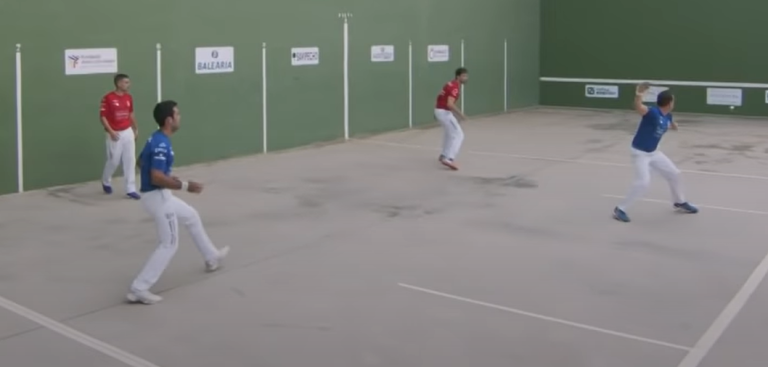General Rules of Lagori
Did you know that Lagori, a traditional Indian game, has been played for centuries and continues to be a popular choice for outdoor gatherings? The game involves a unique combination of skill and strategy that keeps players engaged and challenged. As you navigate through the rules and nuances of Lagori, you will discover how this game can be a test of agility and teamwork. Stay tuned to uncover the secrets behind mastering this ancient pastime and outsmarting your opponents in the ultimate game of Lagori.
Objective
To win a game of Lagori, players must knock down all the opposing team's stacked stones while avoiding being hit by the ball. The objective seems simple, but achieving it requires a combination of skill, strategy, and teamwork. Understanding the rules and developing effective tactics are vital for success in this traditional Indian game.
In Lagori, the main objective is to target the opposing team's stacked stones while defending your own. This dual focus on offense and defense adds layers of complexity to the game. Players must carefully plan their moves to strike the right balance between knocking down the opponent's stones and protecting their own from being hit by the ball.
A key strategy in Lagori is to divide roles among team members. Some players may focus on throwing the ball accurately to dislodge the stones, while others concentrate on quickly rebuilding their stack after a successful hit. This division of labor can maximize efficiency and increase the team's chances of winning.
Players also need to adapt their tactics based on the specific game setup and equipment available. Understanding how the environment and tools affect gameplay is essential for developing a winning strategy. By staying alert, communicating effectively with teammates, and constantly refining their approach, players can increase their chances of scoring points and emerging victorious in Lagori.
Players
In a game of Lagori, players are typically divided into two teams, each consisting of an equal number of participants. The players' positions, team dynamics, communication, and teamwork strategies are vital for success in Lagori. Here's a breakdown of player roles and strategies:
| Player Positions | Team Dynamics | Communication | Teamwork Strategies |
|---|---|---|---|
| 1. Raider | – Encourages teamwork | – Clear, concise signals | – Coordinate attacks |
| 2. Defenders | – Support teammates | – Verbal cues | – Cover the raider |
| 3. Chaser | – Strategic movements | – Eye contact | – Defend against opponents |
| 4. Throwers | – Accuracy in throws | – Hand signals | – Aim for the pile |
| 5. Retrievers | – Quick retrieval | – Non-verbal cues | – Retrieve the stone quickly |
The raider plays a central role in the team's offense, aiming to knock down the pile of stones while avoiding being hit by the defenders. Defenders work together to protect the pile and prevent the raider from succeeding. Chasers strategically move to tag the raider or retrieve the ball quickly. Throwers focus on accurate throws to disrupt the opposing team, while retrievers swiftly collect the ball to keep the game flowing. Effective communication through both verbal and non-verbal cues is essential for seamless teamwork and successful gameplay in Lagori.
Equipment
Players in a game of Lagori require minimal equipment to participate effectively and enjoy the game to its fullest potential. The primary equipment needed includes a soft rubber ball and seven flat stones. These stones should be flat enough to stack but with some weight to withstand being knocked over during gameplay. To make sure the game runs smoothly, it is essential to maintain the equipment properly. This involves checking the stones for any damage or sharp edges that could cause injury during play.
When setting up the playing surface for Lagori, a level ground free of any obstacles is critical. Safety precautions should be taken to remove any debris or hazards that could lead to tripping or injuries. The playing area should provide enough space for players to move around freely without any restrictions, enhancing the overall gaming experience.
To care for the equipment, it is advisable to store the stones in a dry place to prevent them from getting damaged or chipped. The ball should also be kept away from sharp objects that could puncture or damage it. By taking these equipment maintenance steps, players can make sure a longer lifespan for their Lagori set and continue enjoying the game for many more rounds to come.
Setup
For an efficient and organized start to a game of Lagori, the setup process should begin by designating a clear playing area free of any obstacles that could hinder gameplay. Making sure a smooth setup enhances the overall gaming experience and sets the stage for successful team dynamics and communication strategies.
- Define the Playing Area: Start by marking the boundaries of the playing area clearly. This establishes the limits within which players can move and guarantees a fair game for all participants.
- Arrange the Lagori Stack: Place the seven stones in a neat stack at the center of the playing area. Ensuring that the stones are stacked securely will prevent any disruptions during the game.
- Organize Teams: Divide the players into two teams, making sure there is a balance of skill levels and strengths. This step not only sets the foundation for team dynamics but also presents pre-game rituals and team bonding opportunities. Encouraging communication strategies within the teams can lead to better coordination during gameplay.
Gameplay
As you progress into the gameplay of Lagori, understanding the points system becomes vital. Points are awarded based on successful hits on the opposing team's stack of stones. Strategic positioning of your team members can greatly impact your ability to score points efficiently. Mastering the points aspect of Lagori is essential for achieving victory in this traditional game.
Gameplay Basics
To understand the essence of Lagori gameplay, one must investigate the intricate interplay between strategy and coordination required to succeed in this ancient sport.
- Team Dynamics, Communication: Lagori is a team sport that heavily relies on effective communication and understanding among team members. Clear communication is essential for successful gameplay.
- Physical Coordination, Timing: Lagori demands precise physical coordination and impeccable timing from all players. The ability to coordinate movements and actions with teammates is critical for scoring points and winning the game.
- Strategic Thinking: Lagori is not just about physical prowess; it also requires strategic thinking. Players must strategize their moves, anticipate opponents' actions, and adapt their gameplay accordingly to outwit the other team.
Strategic Positioning
Strategically moving around the field in Lagori involves precise positioning to gain a tactical advantage over the opposing team. Team dynamics play a critical role in strategic positioning. Effective communication strategies are essential to make sure that team members are coordinated and can react swiftly to changing game dynamics. When considering defensive techniques, positioning players strategically to guard the pile of stones is important. Placing defenders in key positions can help intercept throws and prevent the opposing team from knocking down the stones. On the other hand, offensive strategies require players to position themselves strategically to create openings in the opposing team's defense. By understanding the importance of strategic positioning and mastering team dynamics, players can elevate their Lagori gameplay to new heights.
Scoring
The scoring system in Lagori is based on the successful hitting of the opposing team's stacks. When discussing scoring in Lagori, understanding the scoring tactics, point distribution, team dynamics, and communication strategies are key components for success.
Here are three essential points to bear in mind when it comes to scoring in Lagori:
- Scoring Tactics: To score points in Lagori, your team needs to aim accurately at the opposing team's stacks. Utilize strategies like aiming for the weaker stack to destabilize their formation and create openings for scoring opportunities. Additionally, timing your throws with precision can catch the opposing team off guard, leading to successful hits and points earned.
- Point Distribution: In Lagori, points are typically awarded for each successful hit on the opposing team's stacks. The number of points can vary based on house rules but typically range from 1 to 3 points per hit. Understanding how points are distributed can help your team strategize on whether to focus on quick, lower-point hits or riskier, higher-point shots.
- Team Dynamics & Communication Strategies: Effective communication within your team is crucial for successful scoring in Lagori. Clear and concise communication regarding target selection, timing of throws, and defensive strategies can elevate your team's performance. Understanding each team member's strengths and weaknesses can also help in distributing roles effectively, maximizing your team's scoring potential.
Winning
Achieving victory in Lagori requires precise coordination, strategic gameplay, and efficient utilization of team dynamics. To win in Lagori, you must employ a variety of strategies and techniques that capitalize on your team's strengths and exploit your opponents' weaknesses.
One effective strategy is to focus on quick and accurate throws to knock down the central pile of stones. By doing so, you can limit your opponents' opportunities to score points and gain an advantage in the game. Additionally, coordinating with your teammates to create distractions and openings can help you maneuver around the field more effectively.
Utilizing techniques such as feints and misdirection can also be critical in outsmarting the opposing team. By keeping them guessing and off-balance, you can create opportunities to strike and score points while they are unprepared.
Moreover, mastering the art of teamwork is essential in Lagori. Communicating effectively with your teammates, coordinating your movements, and supporting each other throughout the game can significantly increase your chances of winning. Remember, a cohesive team that works together seamlessly is often more successful than a group of individuals working independently.
Frequently Asked Questions
Are There Any Strategies or Tactics That Players Can Use to Gain an Advantage in Lagori?
To gain an advantage in lagori, focus on defensive strategies like swift tag-backs and efficient blockades. Incorporate offensive tactics such as precise throws and deceptive moves. Strong teamwork and clear communication skills are essential for success.
What Are Some Common Mistakes That Players Make While Playing Lagori?
When playing Lagori, common mistakes players make include being too aggressive, not communicating effectively, and lacking awareness of their surroundings. Improving skills through practice and understanding winning strategies can help avoid these errors.
Are There Any Variations or Alternate Rules That Can Be Played in Lagori?
When playing Lagori, you can introduce variations like changing the number of stones or altering the throwing distance. These modifications create unique challenges and require different strategies. Experimenting with such alternate rules can enhance your winning tactics.
How Long Does a Typical Game of Lagori Last?
In a typical game of Lagori, the duration can vary based on skill level and number of players. The scoring system adds excitement as you aim to hit the stack within a set time limit.
Can Lagori Be Played Indoors or Is It Strictly an Outdoor Game?
Indoor setup for Lagori is possible, offering a weather-proof option. This allows you to enjoy the game regardless of weather conditions. The game's adaptability makes it versatile for various play environments.






